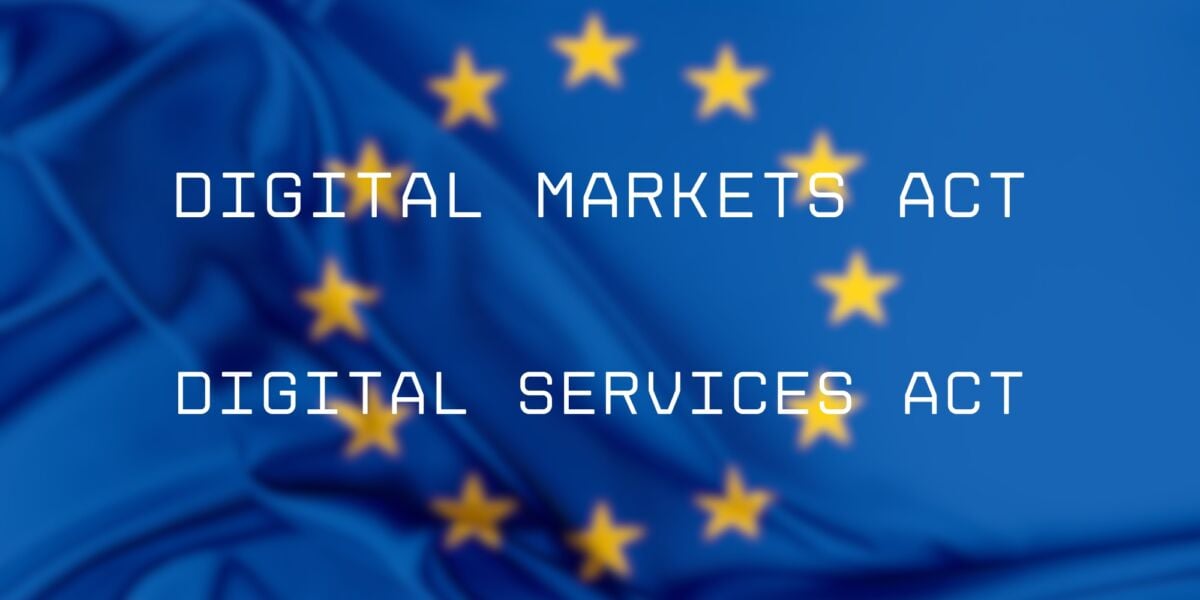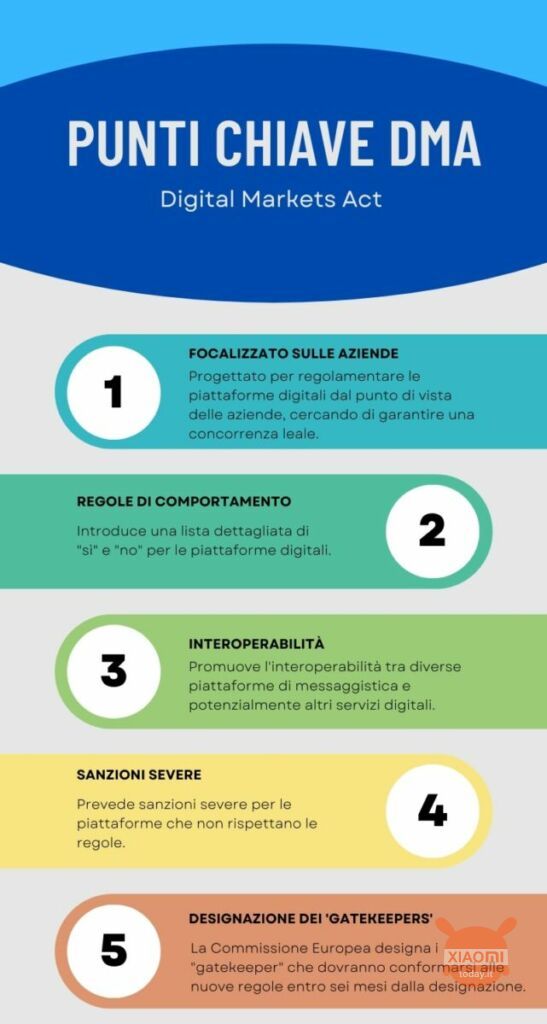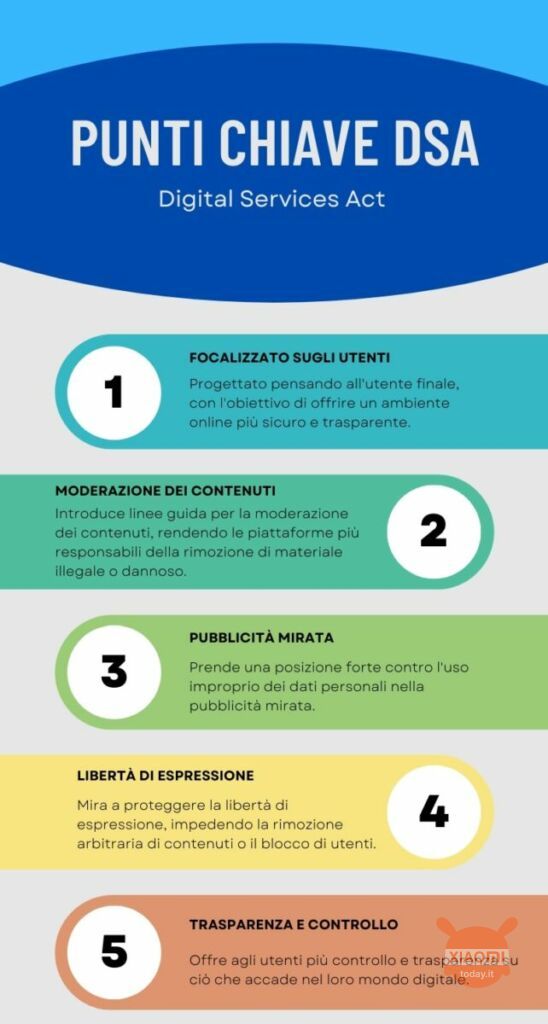
The digital world is constantly evolving, and with it also the rules that govern it. Recently, the European Union has adopted two important laws that will radically change the digital landscape: the Digital Markets Act (DMA) and the Digital Services Act (DSA). We talk about it all the time and we hear about it every day when it comes to companies like Meta. But what exactly are they and how will they affect our online life? Let's find out together by moving through metaphors in order to better understand the sea in which we are moving
Topics of this article:
The power of digital platforms: a double-edged sword
Platforms like Amazon, Google and Facebook have become much more than just websites or applications; they have become real infrastructure digital on which much of our daily life is based. While these platforms have made unprecedented connectivity and access to information possible, they have also raised new ethical and social questions that we can no longer ignore.
For example, let's take Amazon. On the one hand, it has revolutionized the way we shop, offering convenience that was unthinkable just a few years ago. But on the other hand, he has the dominant position put small retailers in difficulty and raised concerns about labor practices and environmental impacts.
Or let's think about Google, which has become synonymous with online search. While it offers us almost unlimited access to information, it also collects a huge amount of data about us, which can be used in ways we don't always fully understand.
And then there's Facebook, which has changed the way we interact socially. But this platform also received criticism for the way it manages user privacy and for its role in the spread of false or misleading information, with potential repercussions on democracy and society in general.
Digital Markets Act: a compass for the digital future
The Digital Markets Act (DMA) is not just a law; it's sort of compass for companies that the European Union created to navigate the complicated digital ocean. Its fundamental mission is to ensure a more balanced online environment and fair to all players involved, from startups to tech empires. The DMA introduces a detailed list of acceptable and unacceptable behaviors for digital platforms, with the aim of eliminating or reducing unfair commercial practices that can distort the market.
To exemplify, one of the most discussed rules of the DMA is that prevents platforms from favoring their own services or products to the detriment of those of third parties. Imagine, for example, searching for a product on a search engine and always finding at the top of the results the products sold directly by the same company that manages the search engine. This type of behavior would limit the visibility of small businesses, making it almost impossible to compete with the giants of the sector. Thanks to the DMA, this type of practice would be considered unacceptable.
Furthermore, the DMA predicts severe sanctions for platforms that do not respect these rules, sending a clear message: the era of the digital “wild west” is coming to an end. This is a crucial step to ensure that the digital marketplace is a place where fair competition is the norm, not the exception.
Interoperability
One of the most revolutionary aspects of the DMA is the promoting interoperability between different messaging platforms. This will not only improve the user experience, but could also open new doors for innovation. Imagine a world where you can send a message from WhatsApp to a Telegram user without having to change applications. This interoperability could also extend to other areas, such as cloud storage services or streaming platforms, making digital life more fluid and less fragmented.

Digital Services Act: a beacon for the protection of online users
If the Digital Markets Act is the compass for companies in the digital sea, the Digital Services Act (DSA) is the beacon for users navigating the murky waters of online. This law was designed with the user in mind, aiming to give each of us more control and transparency over what happens in our digital world.
One of the most salient aspects of the DSA is its stance against the improper use of personal data in targeted advertising. For example, if you are a parent, you may be particularly concerned about the ads your children see online. The DSA explicitly prohibits the use of sensitive data, such as sexual orientation, religious beliefs or age, for target advertisements, especially when they are directed at a vulnerable audience such as minors.
But the DSA goes beyond simple advertising. It also introduces new guidelines for content moderation, making digital platforms more accountable for timely removal of illegal or harmful material. Imagine a social network where hate speech or fake news are promptly identified and removed: this is the objective that the DSA sets itself.
Furthermore, the law aims to protect freedom of expression, ensuring that platforms cannot arbitrarily remove content or block users without valid justification. This balance between control and freedom is what makes DSA an important step towards a safer and more inclusive Internet for all.

Next steps
The new laws are already in force and platforms will have to comply by specific dates. For example, the DMA required the European Commission to designate “gatekeepers” (Alphabet, Amazon, Apple, ByteDance, Meta, Microsoft and Samsung) by September 6, 2023. These will have six months to comply with the new rules. This represents a pivotal moment for Europe's digital future, and all eyes will be on how these laws will be implemented and what effect they will have on the digital landscape.
Key points of the Digital Markets Act and Digital Services Act
| Digital Markets Act (DMA) | Digital Services Act (DSA) |
|---|---|
| Focused on businesses: The DMA is designed to regulate digital platforms from a business perspective, seeking to ensure fair competition. | User-focused: The DSA is designed with the end user in mind, with the goal of providing a more secure and transparent online environment. |
| Rules of conduct: Introduces a detailed list of “dos” and “don'ts” for digital platforms. | Content moderation: Introduces guidelines for content moderation, making platforms more responsible for removing illegal or harmful material. |
| Interoperability: Promotes interoperability between different messaging platforms and potentially other digital services. | Targeted advertising: Takes a strong stand against the misuse of personal data in targeted advertising. |
| Severe sanctions: Provides severe penalties for platforms that do not comply with the rules. | Freedom of expression: Aims to protect freedom of expression by preventing arbitrary removal of content or blocking of users. |
| Designation of 'gatekeepers': The European Commission designates “gatekeepers” who will have to comply with the new rules within six months of designation. | Transparency and control: Gives users more control and transparency over what happens in their digital world. |








